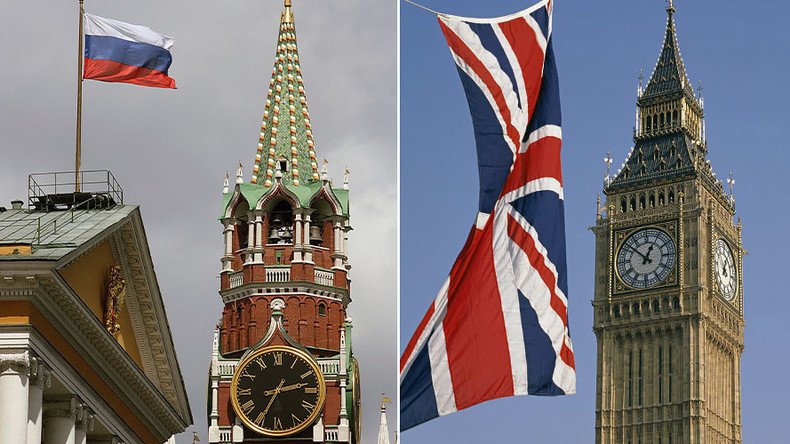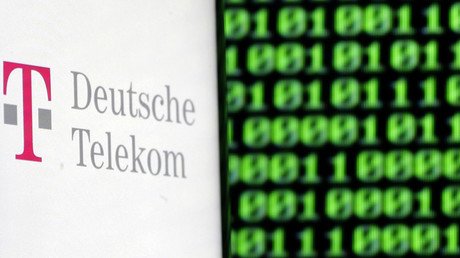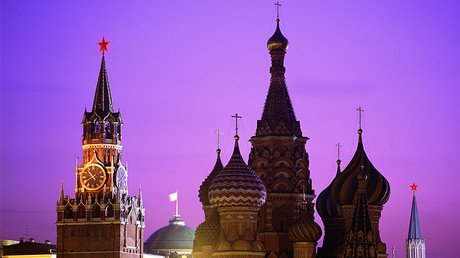‘I’m surprised Russians not blamed for bad weather’ – former UK Ambassador to Moscow

The narrative dominating the popular media about an “evil, revanchist, and cunning” Russia is grotesquely exaggerated and produces some truly absurd stories, says Sir Tony Brenton, who was British Ambassador to Russia from 2004–2008.
A Russia Debate took place at the Oxford Union on Thursday. One side of the dispute argued that “the West treats Russia unfairly,” and the other claimed that the animosity towards Russia and the sanctions against it are a result of its conduct.
Following the event, RT met with speakers from both parties – the proposition represented by Sir Tony Brenton, British Ambassador to Russia from 2004–2008, and the opposition led by John Andrews, senior editor for Project Syndicate and one of the leadings editors for The Economist.
RT: John, during the debate you mentioned media perception of Russia. How balanced do you feel that is in the mainstream Western media, not perhaps so much towards Putin, but towards the crisis in relations with Russia right now?
John Andrews: My point is that there is a balance in the way that the mainstream media, the proper media, treats both “sides,” if you want. I think we treat Russia fairly, with a proper analysis of what is going on in Russia. I think we do the same for Western Europe and the US. Then comes the question of perception: Who do you think is right? But there is not a lot of common ground between my side of the debate and Tony’s [Brenton] side. A lot of criticism of Russia, as it is. At the same time, I think we also criticize what is happening in the West. In particularly, for example, the Trump election. That was my main point.
And I do have some sympathy with Moscow, the Kremlin argument that if we take, for example, Crimea. What is the difference between Crimea and Kosovo? Or if you take the question of Partnership for Peace with Ukraine, and so on. Wasn’t that really an invitation to join NATO? You can see these things in various ways. One can understand what I would call the sort of paranoia of Russia. But that paranoia is not without some cause. I think it is exaggerated. Nonetheless one could also understand it.
RT: Tony, is that something you would agree with?
Tony Brenton: Up to a point. John is right that the good bits of the British media, the good bits of the Western media, do go to a lot of trouble to get Russia right and report objectively. I have to say the Economist is one such example. Nevertheless, there is a narrative about Russia which dominates coverage in the popular media, which is that Russia is an evil, revanchist, cunning, manipulating threat.
Russia is obviously pretty unscrupulous in various ways, but I believe it is grotesquely exaggerated. It produces some truly absurd stories, like the wonderful story which was that the Russians deliberately leaked the last episode of the BBC Sherlock Holmes because they had some irritation. I’ve been slightly surprised over today, not to have seen a story about how the Russians are responsible for the bad weather here – Storm Boris. That narrative, which dominates as a popular coverage, infects the quality coverage as well to an extent. It is dangerous, because it makes it much harder for Western politicians to do sensible business with Russian politicians.
RT: John, do you feel that after the Crimea crisis, perhaps, there hasn’t been deep enough analysis of historical trends between Russia-Western relations?
JA: I think there has been a deep analysis. But, of course, you can’t keep repeating – deep analysis happens quite occasionally. The link between Kiev and Russia, for example, has been explored historically. The essential part of that plays in the Russian psyche. But we can’t afford to be trapped by our history, particularly now. Now, not just in the post-World War II, but post-Cold War, theoretically. Anyway we’re not going back into the Cold War.
…I do think we have a real problem now in a digital age of really sifting facts from non-facts. I mean the idea of alternative facts, for example, which is now so current in the US – it is such a bizarre and pernicious idea that really needs somehow to be fought against.
RT: Do you believe there is a place for RT in the media as an alternative source of media?
JA: Yes, I really do. I wouldn’t trust RT, forgive me, on some things about Russian politics, but I think RT does provide very good coverage, sometimes alternative coverage. If you look, for example, at the Russian involvement in Syria, which is quite controversial, I think you cannot – I used to live in the Middle East – frankly there are no good guys on either side in Syria. That is something that we in the West have tended to overlook, and we shouldn’t have. You cannot paint it black and white. I don’t agree, particularly, with Russian policy. But, on the other hand, Obama’s policy in the end didn’t work. So, we are where we are. I think politicians and diplomats like Tony have to deal with reality.
RT:Tony you’ve got experience as Ambassador to Moscow. We’re seeing now talks in Geneva involving the Syrian opposition. How do you see future developments there?
JA: There are areas of international business where we and Russia have a shared interest. Islamic extremism being one obvious one. Cyber warfare is another one. The huge fuss – I was in the US through all of that. They are very angry about what happened. I am not sure that what they claimed happened did happen, and they will make sure it doesn’t happen again.
This is quite important: we are with regards to cyber warfare in exactly the same situation as we were back in the 1950s with regard to nuclear warfare. We had a brand-new set of weapons with no rules of the road. We and the Russians have every interest in beginning to establish some rules of the road. So hopefully hacking incidents, like the one we saw during the US election won’t happen again, but correspondingly Russia gets some reassurances…
I would hope that now that, in a sense, the page has been turned in Syria… that we would begin to look for shared way forward. I think the Russians have acknowledged that Assad can’t stay there forever. We, and the Force majeure, are beginning to recognize Assad is not going to go tomorrow, so it is a debate about how you effect the transition out of Assad. If we can come together on that, that is a big step towards solving the Syrian problem.
The statements, views and opinions expressed in this column are solely those of the author and do not necessarily represent those of RT.














